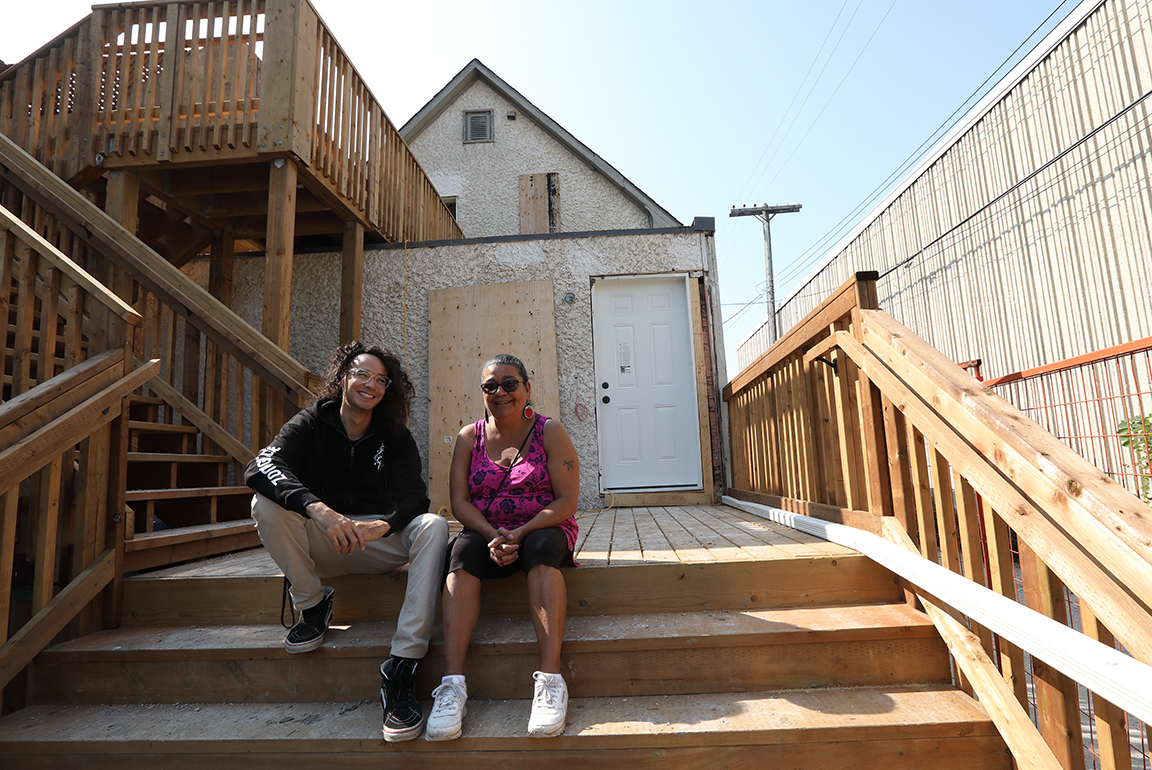2019 housing predictions: Will these impact my mortgage, purchase, sale or renovation?
Buying & selling: With so many industry experts expecting changes to 2019 mortgage rates and home prices, how will that impact the average Canadian homebuyer and seller?
Predictions are never a sure thing, but industry forecasts and expert opinions can go a long way to help you plan and manage your wealth strategy. That includes home buying, selling, and even when you’re planning to renovate.
You’ve probably noticed that many mortgage and home price predictions are Canada-wide — easily swayed by the headline-grabbing Toronto and Vancouver markets. That’s why a look at local pricing is important since Winnipeg won’t always follow suit with the national trends and forecasts.
Here are just a few of the forecasted changes this year and what they might mean for you:
1. Buying in Winnipeg? Prepare to pay more…

While the national forecast calls for a general slump in house prices this year, the local prediction from RE/MAX Integra is that Winnipeg home prices will continue to marginally increase.
- “Winnipeg has shown a moderate increase of average residential sale price, rising from $315,720 in 2017 to $323,001 in 2018.”
- “Looking ahead to 2019, prices are expected to continue on this upward trajectory, with an expected increase of four per cent.”
- “Although the senior population is downsizing, immigration to Winnipeg from urban centres such as Toronto and Vancouver (15,000 people move to Manitoba every year) is expected to drive sales going into 2019.”
If you’re going to buy a home in a market experiencing upward pricing, you absolutely must find out how much house you can really afford. Remember, your costs will include your monthly mortgage payments (principal plus interest), property taxes, home insurance and utilities. Do your homework by using online mortgage calculators and rate comparison tools, but then be sure to speak to a financial advisor to figure out a realistic monthly payment your budget can handle.
Then commit to staying within that budget. Don’t rush into a home purchase that doesn’t make financial sense for you, no matter how much pressure you feel to get into the market. Stay within your financial comfort zone. You may qualify for a larger mortgage then you thought, but that doesn’t mean you should spend that much.

Once you have your budget, here are some tips to help prepare to make a home purchase:
- Continue to save: The more you can put down on your home purchase, the less you need to borrow and the less interest you’ll have to pay in the long term. Stay patient and motivated. Here are some extra tips to save.
- Wants vs. needs: If you can’t afford to buy the house you want, be willing to give up some “nice-to-haves” for your “must-haves.” Find the least expensive home in the best neighbourhood you can afford. Remember you can add value by upgrading a house over time, rather than buying one that’s already been remodelled.
- Be flexible on the location: What if the location where you’re planning to buy is what’s busting your budget? You might be surprised at the gem you can find in another part of town. Alternatively, stick to your dream location and be prepared to buy a fixer-upper, as long as it’s structurally sound. Ask your financial adviser about a Purchase Plus Improvements Mortgage that lets you include some renovation costs upfront in your mortgage.
- Don’t forget about closing costs. Closing costs typically include the cost associated with Land Transfer Tax, Survey Certificate, Zoning Memorandum, Title Insurance and other potential charges as well as lawyer’s Legal Fees. You should budget 2-2.5% of your purchase price to cover closing cost. When applying for a mortgage, be prepared to show proof of down payment and funds set aside for closing costs.
As a seller, keep in mind that new buyers are being priced out of the market, which could lead to fewer offers for your home. Prepare your home for potential homebuyers and work with a real estate agent to help you price your house correctly.
If you can, take your time to find the right buyer and the best price. But remember, that first offer might be your only offer. It may be better to accept a slightly lower offer than continue paying monthly mortgage, tax and insurance fees, only to get a similar or worse offer several months later. Patience may put you in a better bargaining position, but, as Dragons’ Den has taught us, greed can kill the deal.
Read the full RE/MAX Integra press release…
2. Selling in other provinces? Maybe wait and see…
Canadian Mortgage Trends focused on several predictions about Canadian home sales and price fluctuations this year — which might not be the best news for home sellers. In general, the prediction is for a national housing slowdown.
- “The Canadian Real Estate Association is forecasting national home sales to post double-digit declines in 2019, falling to the lowest level in five years. Despite supportive population growth, the association says much of the headwinds are the result of government policy designed to throw cold water on the housing market.”
- “The national housing market will remain in a “correctional cycle,” with home prices rising at a “snail’s pace.”

If you’re considering selling a house or property in other parts of Canada, you may not get as much as you expected this year. Consider waiting out the correctional cycle if you can, or look at other options like turning that house into a rental property. Check to see what the current rental vacancy rate is like in the area. High vacancy rates indicate that a property may not rent well — while low vacancy rates can point to strong rental sales.
Read the full Canadian Mortgage Trends article…
3. Shopping for a mortgage? Get your timing right…
Global News reports that two interest-rate increases could happen this year, which could potentially put the Bank of Canada’s rate up to 2.25 per cent. This can increase the amount of your payment going towards interest in a variable rate mortgage and also impact you if your fixed-rate mortgage is up for renewal this year.

- “That would likely add $68 a month to a 2.5 per cent variable-rate mortgage amortized over 25 years with monthly payments of $1,200. Over a whole year, your mortgage would cost you over $800 more.”
- “Something similar will happen if you owe money through lines of credit, which also have variable interest rates.”
- “Even if you have the popular five-year fixed-rate mortgage, you might be in for an unpleasant awakening. If you bought your house around five years ago, your payments may go up this year.”

If you’re a first-time home buyer, make sure you understand all the options with variable and fixed-rate mortgages. Get your timing right and ensure that you are preapproved to secure your rate, especially if you’re planning to purchase in the near future.
Just starting out in your first home purchasing journey? Your financial advisor can help connect all the dots, including putting you in touch with realtors, lawyers and insurance brokers.
Likewise for homeowners with mortgages coming up for renewal in 2019 — call your financial advisor and get some timely advice. Remember, many financial institutions and credit unions offer early maturity options up to 120 days depending on term and type, without a penalty.
Read the full Global News story…
4. Renovating your home?
The popular Home Equity Line of Credit (also commonly known as a HELOC) could be put on a tighter leash this year. These lines of credit can be especially useful for homeowners looking to renovate, or even if you’re considering selling and upsizing — so if you fall into either bucket, take a closer look at this prediction.

As explained by Zolo, a leading tech-powered brokerage, stricter guidelines could come into play — and even if you haven’t used the entire HELOC, that full amount could be considered debt when shopping for other loans and credit.
Each financial institution will likely set their own rules, so a visit to your financial advisor could be the best way of getting the full picture. They’ll know all about your institution’s updated guidelines.
Learn more about leveraging HELOCs: How to finance a home renovation
- “Tightening of the lending rules will also lead to stricter guidelines on Home Equity Lines of Credit.”
- “Most of this tightening of HELOC guidelines will come from banks taking voluntary action.”
- “The tightening of HELOC rules will affect those who already have a home and have built up some equity to provide some borrowing capacity. But it also means those with HELOCs may not qualify for a higher mortgage if they opt to sell and upsize.”

If you need extra money for home renovations this year, the HELOC may be a good lending product to consider. HELOC is typically priced based on the prime rate (and not fixed mortgage rate), so if the prime rate is to rise, which is what is currently happening in the Canadian economy, your ability to be approved for a specific amount might be harder to attain. Although it’s still possible, homeowners may have to pass through a few more hoops to get those quartz countertops or bathroom remodel.
Read the full Zolo article…
The clouds always part…
Yes, there are some warnings in the mortgage and housing forecast, but there are also sunny breaks in the skies ahead.
For one, despite bigger swings that may have happened to prices in other parts of Canada, the market is finding ways to stabilize and self-correct. And when you look at dips in the stock market, real estate investments have compared relatively well. Adding to the positive forecast, Canada will continue to see a high immigration rate, which will boost housing demand over the next decade and help keep property sales balanced.
No matter what your mortgage or home needs, remember to take any prediction with a grain of salt, as the market can change on a dime. And as always, it’s important to do additional reading, research, and then speak with an expert for guidance before locking into any decision.
If you’re looking for more help or information about your mortgage options, the impact of market trends and potential fluctuations, get in touch with an ACU financial advisor who will be able to answer any of your questions.
Up Next
Manitoba Theatre for Young People dreams big with new campaign
A home for creativity and imagination for generations, Manitoba Theatre for Young People (MTYP) has helped thousands of children and youth across the province discover the joy of theatre since…
Zoongizi Ode creates housing solutions to help Indigenous youth aging out of care
For the past decade, Indigenous-led not-for-profit organization, Zoongizi Ode (Zoon-gai-zai O-day), has been working on smoothing the transition for Indigenous children aging out of Manitoba’s child welfare system. Along with…
How much money should I save for retirement?
‘The best is yet to come!’ If this classic saying holds true, then your retirement is certainly something to look forward to! Leisurely time with family, friends, travel and hobbies…





